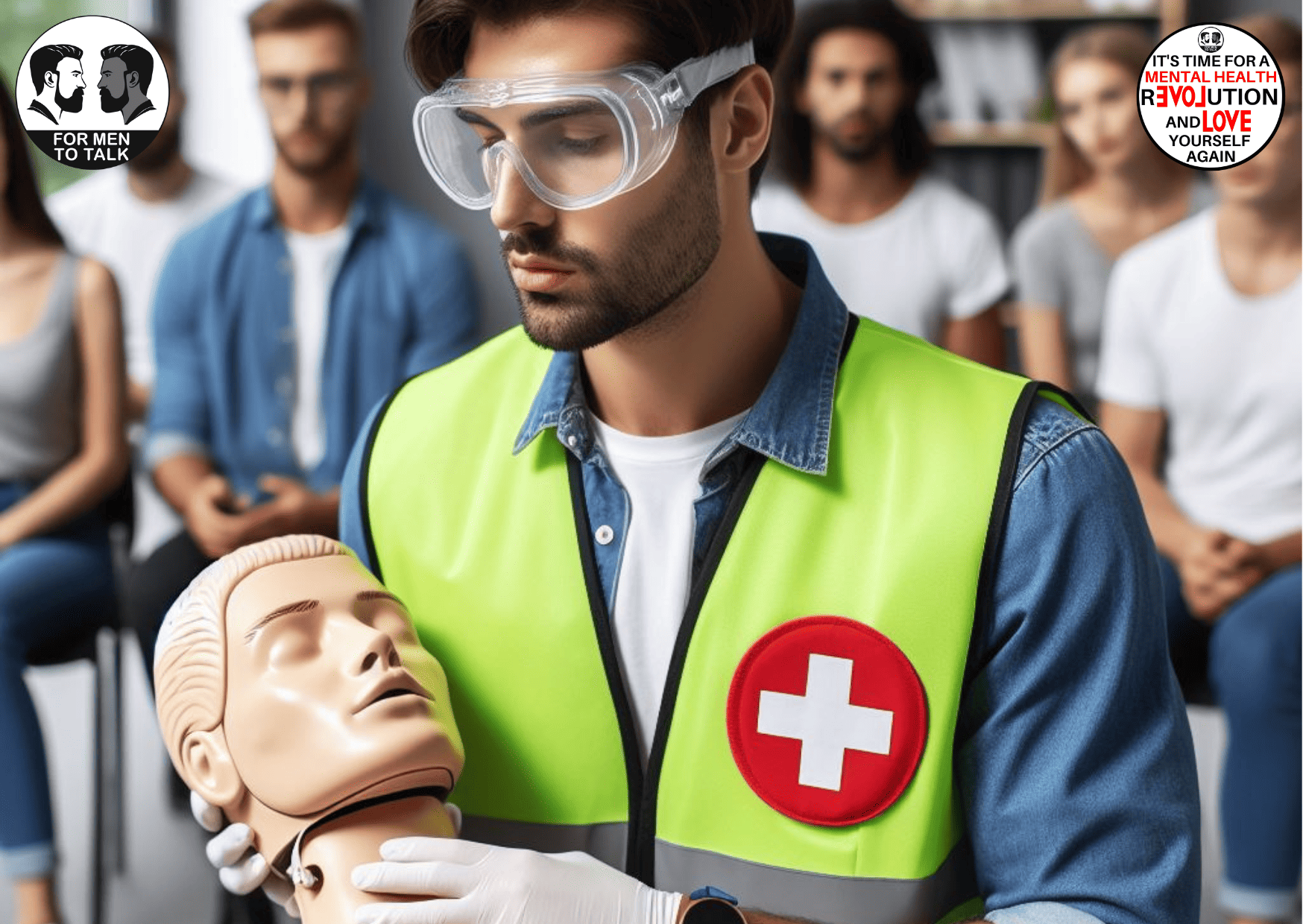The crucial role of First Aid Training in the workplace: A beacon of reassurance for men’s mental health

In any workplace, the safety and well-being of employees are paramount. While the focus has traditionally been on physical health, the importance of mental health is gaining recognition. One significant way to address both aspects is through comprehensive First Aid Training in the workplace. In this blog, we will delve into the benefits of such training and how it serves as a beacon of reassurance for men’s mental health.
1. Immediate Response to Physical Injuries:
First Aid Training equips employees with the skills to respond promptly to physical injuries. In a workplace setting, accidents can happen at any time. From minor cuts to more severe incidents, having employees trained in First Aid ensures that help is available immediately, potentially preventing a minor injury from becoming a major one.
2. Stress Reduction Through Preparedness:
Knowing that there are individuals in the workplace with the ability to provide immediate assistance can reduce stress levels. This not only applies to physical injuries but also extends to the mental reassurance that employees feel when they know their workplace prioritises their safety and well-being.
3. Team Building and Camaraderie:
First Aid Training often involves team-based scenarios, fostering a sense of teamwork and camaraderie among employees. This sense of unity can contribute to a positive work environment, creating a support system that extends beyond emergencies and into the day-to-day challenges of the workplace.
4. Mental Health Awareness:
While traditional First Aid Training focuses on physical health, many programs are expanding to include mental health components. This means that employees are not only trained to handle physical injuries but also equipped with the knowledge and tools to recognize signs of mental health struggles in their colleagues.
5. Reducing Stigma Around Mental Health:
By integrating mental health awareness into First Aid Training, workplaces contribute to breaking the stigma associated with mental health issues. Employees become more comfortable discussing mental health, seeking help when needed, and supporting their colleagues who may be experiencing difficulties.
6. Stress Management Techniques:
First Aid Training can include stress management techniques, providing employees with coping mechanisms for the challenges they may face in the workplace. These techniques not only contribute to a healthier work environment but also have a positive impact on mental well-being.
7. Empowerment and Confidence:
Being trained in First Aid empowers employees to take action in emergency situations, instilling a sense of confidence. This empowerment can extend beyond physical emergencies to mental health support, as employees feel better equipped to assist their colleagues who may be going through a difficult time.
In conclusion, the benefits of First Aid Training in the workplace extend far beyond physical health. By incorporating mental health components, workplaces can become a source of reassurance for their employees. This training not only ensures a swift response to physical injuries but also contributes to a supportive and compassionate work environment, where mental health is prioritised, stigma is reduced, and employees feel confident and empowered to take care of themselves and each other.